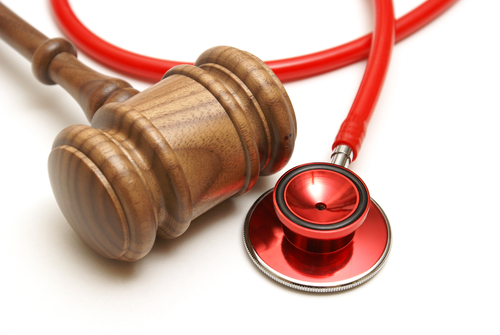I’m all for enhancing patient safety. Count me in on reducing medical errors. I acknowledge that medical mistakes harm patients and many can be prevented. The medical profession should promulgate and support any initiative that accomplishes these objectives.
The public has become suspicious of the medical community who seem to circle the wagons when external scrutiny of its actions is threatened. Yes, sunlight is the best disinfectant, but many of these shining lights are murky shadows that do not illuminate as intended.
Murky Sunlight
Copyright Christopher Down
The government and insurance companies are now providing financial penalties if certain medical quality benchmarks are not met. While this sounds attractive and overdue when it is expressed in a headline or a slogan, the true motivations and capability of these efforts have been questioned. Is it really about safety?
I have tried to expose throughout this blog the fallacy that the medical malpractice system serves as a deterrent and improves medical quality. I reject this lame claim and maintain that this unfair medical malpractice system diminishes medical performance and harms patients. For those, who dare to enter this chamber of horrors, I invite you to bravely peruse the posts that are securely stored in the Legal Quality category of this blog. I have commented on various plaintiff attorneys’ blogs and I’m always struck how so many of them feel that the current system is well designed, fair and provides necessary justice to their injured clients. I regard much of this as self-serving ideology that crumbles through gaping credibility cracks. Would we regard a physician as credible who vigorously opined that our health care system needs no reform?

Our government has a new initiative to protect patients. In this pilot program, patients would notify the government of suspected medical errors by doctors, pharmacists and hospitals. An investigation would ensue.
Good idea? Sure, the concept is reasonable but how would it be implemented? Realize that most of the reported ‘errors’ would not be mistakes at all, just as most lawsuits against doctors are ultimately dismissed as no true negligence was present or could be proved. Many of these ‘errors’ would be recognized complications of medical treatment which are blameless events. Other complaints might relate to perceived inadequate physician communication or indifferent bedside manners. Other true errors might be too minor to warrant reporting such as a patient’s IV (intravenous) line had to be inserted repeatedly or a patient was given the wrong meal which resulted in no untoward effect.
Medical records would have to be reviewed in every case and medical personnel interviewed to try to ascertain the facts. Where would we summon the manpower and the resources to investigate the gazillions of complaints that would be forthcoming once sick folks and their families are encouraged to serve as medical quality officers with a duty to report to serve the greater good?
Even in a medical malpractice case, it is vexing to discover the truth after months of intense medical record scrutiny, discovery and depositions. How would this new system aim to get to the truth after a cursory review of the circumstances?
One way to encourage physician support of such as effort would be if the facts and opinions that are uncovered would be kept confidential and privileged from use by the plaintiffs’ bar. With this provision, then we would know that safety is the priority objective.
Finally, I think that medical error reporting should be reported to hospitals where the alleged errors occurred, and not to the federal government. The hospital is much better suited to provide review and oversight of its own patients and personnel. They know the players and are better positioned to evaluate the situation thoroughly and efficiently. I recognize that there is a conflict of interest here and that there would need to be independent voices participating to assure that there is no cover up or slanting of the facts to protect those who have erred or the institution.
Does this post agitate you? Have I strayed beyond the Bloggers Code of Ethics? Have I made a mistake here or even been negligent? Your role is clear. I am a practicing doctor. You think I have erred. Now, do the right thing. Report me.